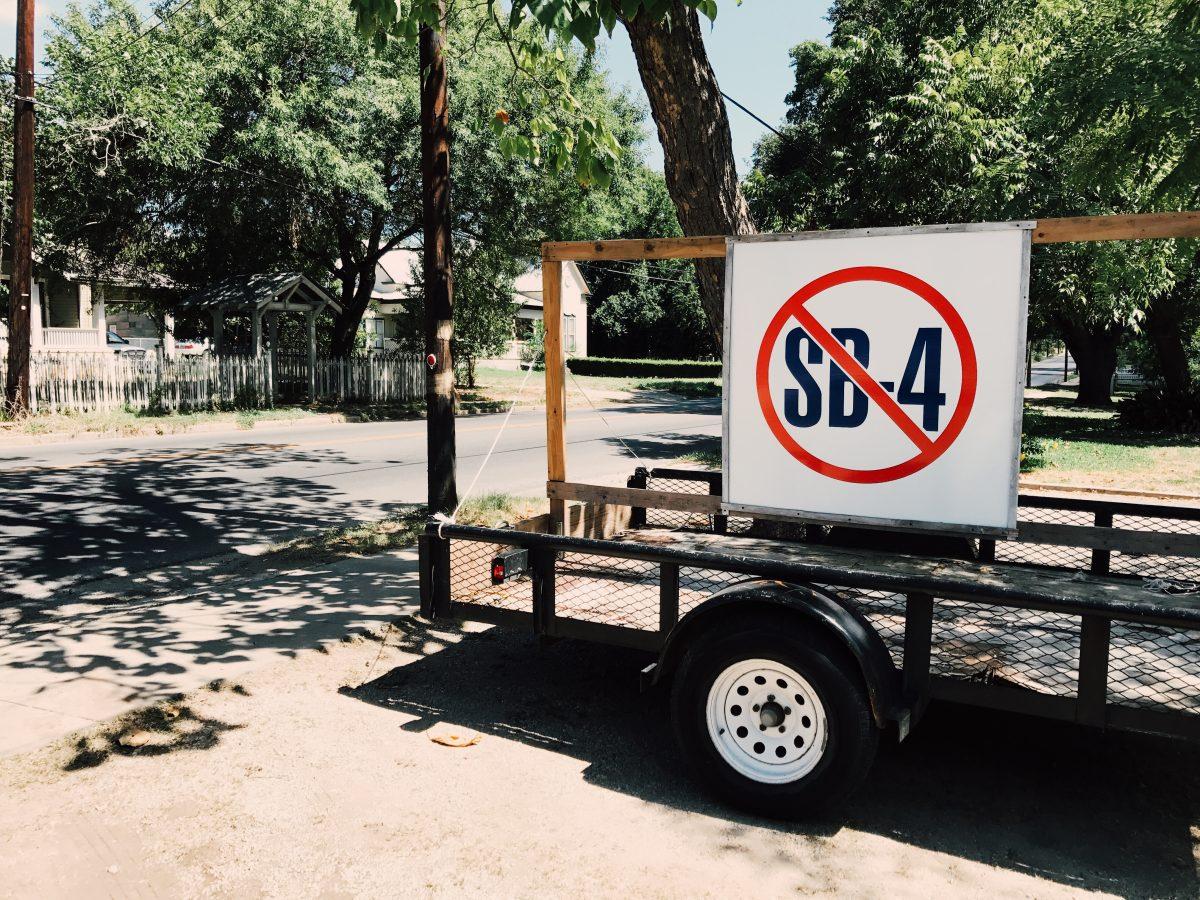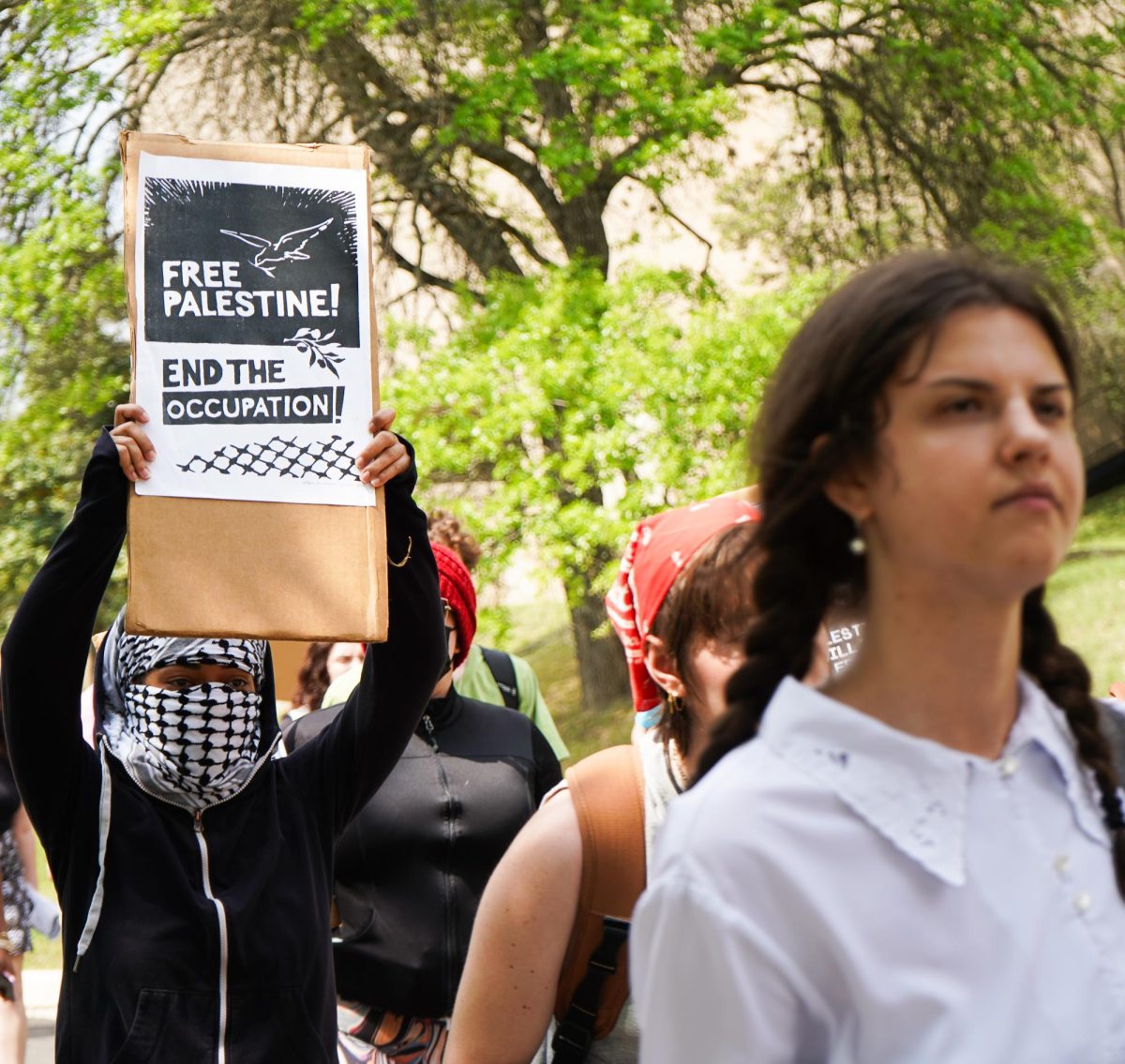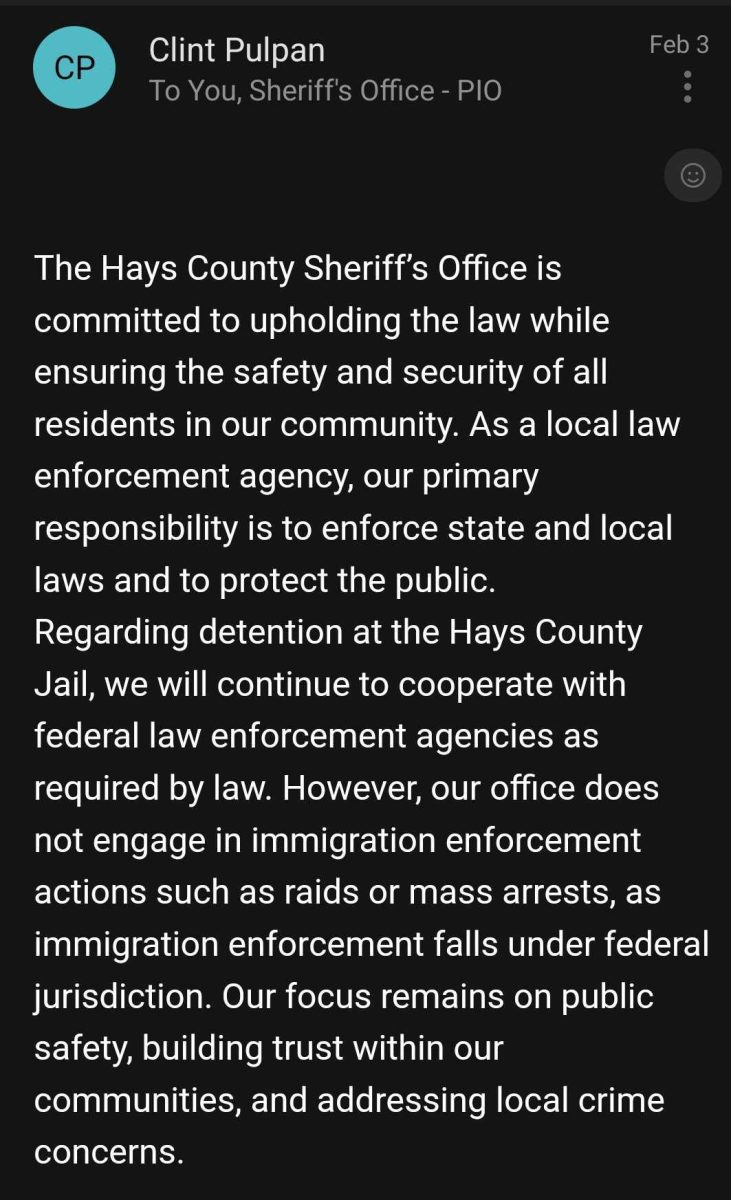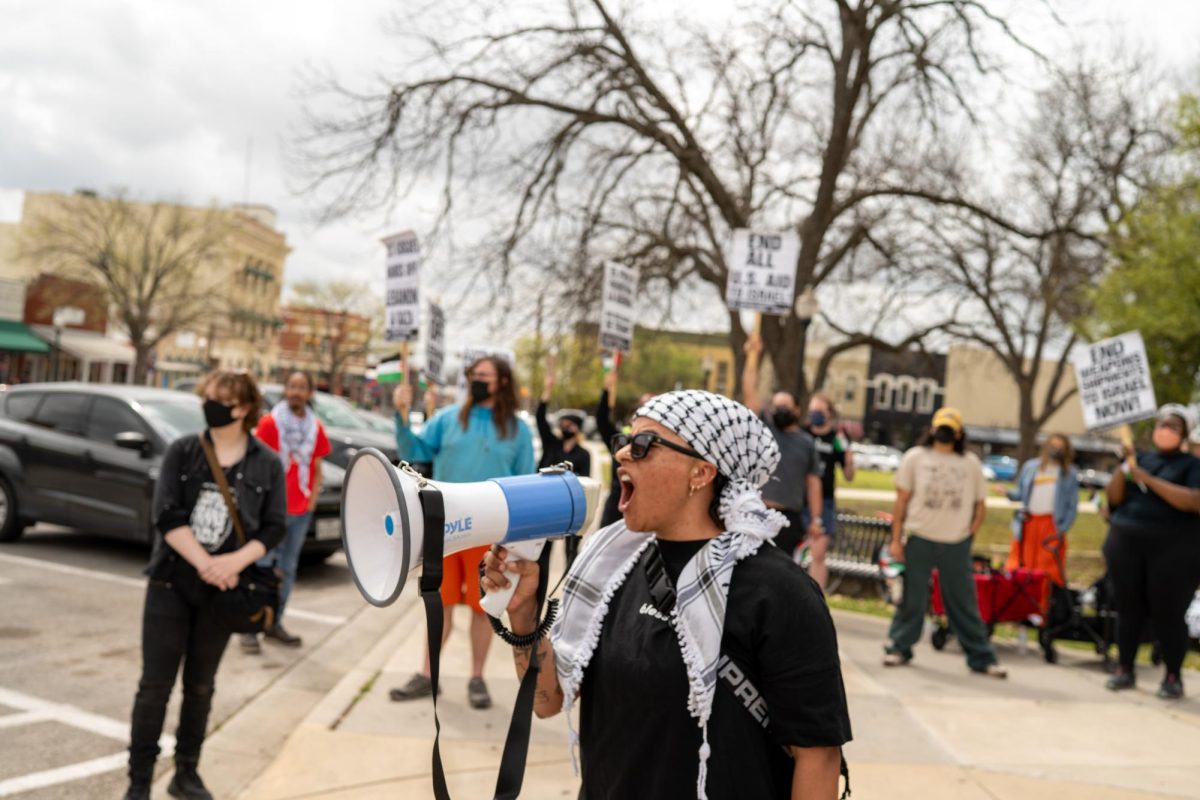Austin-area activist organizations are fighting Senate Bill 4 after a federal appeals court ruled March 13 in favor of Gov. Greg Abbott that a majority of the bill will remain in effect.
Signed into law by Abbot in May 2017, SB 4 is Texas’ strictest immigration enforcement legislation to date and is a source of debate regarding its constitutionality. The bill banned sanctuary cities, cities who have policies designed not to persecute undocumented immigrants, by forcing jurisdictions to fully cooperate with federal immigration officials and punish those who do not comply. Those who refuse to cooperate could be fined up to $25,000 or face jail time. These compliances includes university and school district police departments, giving them the right to ask individuals about their immigration status upon detainment.
The court deemed that SB 4 was constitutional except for the section which prohibited elected officials from expressing their views on the issue. This was seen as an infringement on the first amendment and was struck down.
Several organizations across the state are working together to fight the bill. Karen Munoz, co-founder of Mano Amiga, said she hopes to keep the debate and issue relevant through the utilization of community forums and taking cases of undocumented immigrants involved with Immigration and Customs Enforcement.
“I wasn’t very surprised by the ruling,” Munoz said. “Our court of appeals is quite conservative anyways. As an organization, we have been working as if the bill is already in full effect. Hays County has already been operating as if under SB 4. All undocumented immigrants that are arrested here are reported to ICE.”
Local activist organizations, such as Mano Amiga, are in touch with other grassroots-leadership organizations in Austin that update and aid one another on initiatives taken in different parts of the area.
“We need coordinated efforts in order to reach success,” Munoz said. “We have been in touch with other organizations around Central Texas. Overall, we are trying to urge elected officials to create local policies that would combat the bill while creating more accountability from [police] officers.”
San Marcos Mayor John Thomaides released an official statement March 21 in light of the recent ruling, showing the City Council’s disappointment with the outcome and their commitment to fostering a healthy and safe community.
“This law is skewed in its approach because it forces local law enforcement personnel to act as immigration enforcers and has the potential of bad outcomes for good people,” Thomaides stated. “Although the council is disappointed with Tuesday’s Fifth Circuit Court of Appeals decision, the city will continue to abide by all state and federal laws. Our local law enforcement, led by Chief Stapp, will continue the outreach effort to build trust and cooperation and compassionately serve and protect our entire community.”
Jordan Buckley, director of the UU Social Justice Forum, hopes that the mayor will show his commitment to opposing the bill through action and not just words.
“If the mayor is serious about opposing SB 4, the most eloquent communication is action,” Buckley said. “He can immediately push policy that ends discretionary arrests and restricts access to the arrest-to-deportation pipeline.”
Residents’ concerns voiced at the forums held by Mano Amiga, consist of a possible increase in crime rates due to hesitation to call the police in fear of detainment or deportation. This reservation has also manifested with concerns of the university and school police departments who now have the same jurisdiction as city and county police in terms of status questioning. Opponents of the bill, including Munoz, have voiced concerns of an increase in racial profiling as well.
“The county deserves a sheriff who cares more about its people,” Munoz said. “Our sheriff is the only person so far that hasn’t come forward to talk about the issue during one of our forums. His job effects many people and you can choose to do either the bare minimum or more.”
The ruling by the 5th Circuit Court of Appeals came about while legal challenges continue in a lower San Antonio district court.
One of the easiest and most prominent ways of becoming detained is often related to any kind of traffic violation, as seen with the case of Victor Alejandro Avendano-Ramirez, since driving is considered a privilege, not a right. Legal practitioners recommend individuals know their constitutional rights, regardless of immigration or citizenship status. Organizations like the American Civil Liberties Union have more information on their websites.
On-campus organizations like Student Community of Progressive Empowerment, an organization dedicated to serving and supporting undocumented and DACA students, have also shown support for the immigrant community by providing additional resources to those in need.
Categories:
Activists fight back against SB 4
April 3, 2018
Photo by Shayan Faradineh
0
Donate to The University Star
Your donation will support the student journalists of Texas State University. Your contribution will allow us to purchase equipment and cover our annual website hosting costs.
More to Discover















